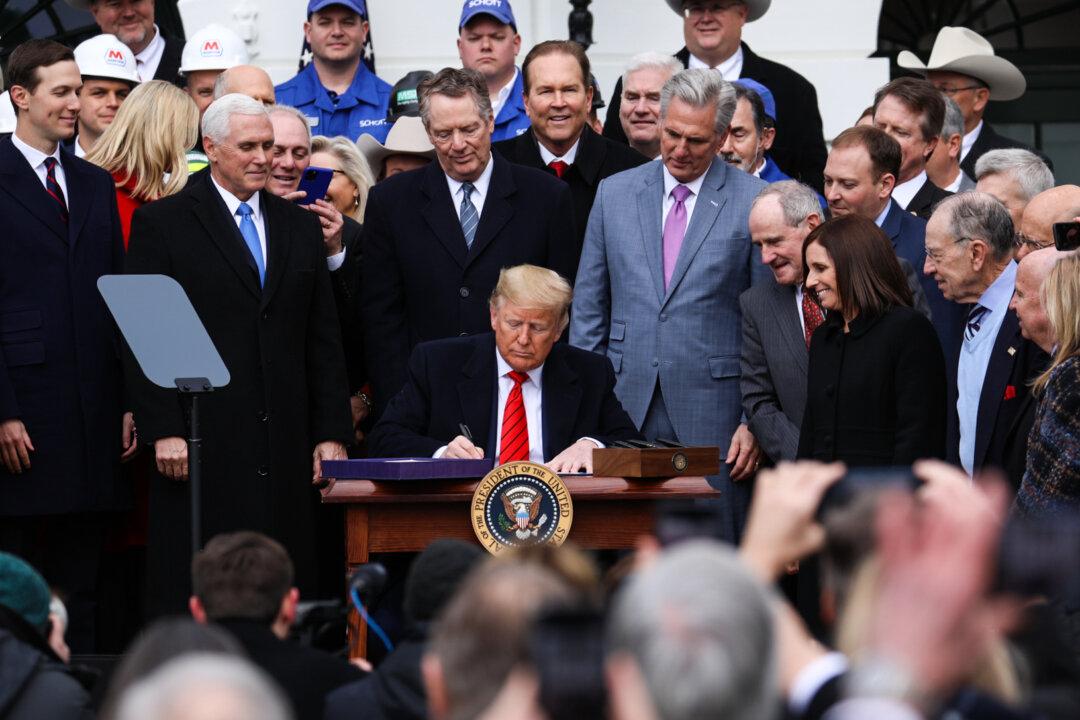President Donald Trump signed the United States–Mexico–Canada Agreement (USMCA) into law on Jan. 29, essentially rewriting the rules for trade in North America.
“It’s been a long time. ... Everyone said it was a deal that could not be done,” said Trump during a signing ceremony at the White House, saying that the measure would end the “NAFTA nightmare,” referring to the 26-year-old North American Free Trade Agreement.





